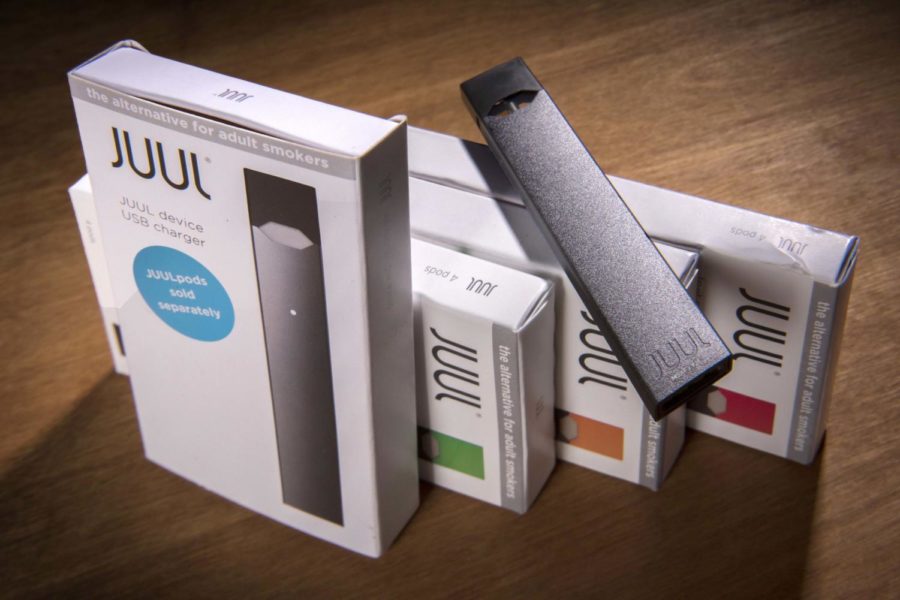Editorial: More states should ban flavored e-cigarettes
Juul is a popular e-cigarette brand.
September 4, 2019
In the wake of numerous vaping-related illnesses, Michigan has become the first state to ban flavored nicotine vaping products in an effort to decrease teen vaping habits.
Gov. Gretchen Whitmer instructed Michigan’s health department to issue a ban on the sale of these products in storefronts and online, according to a statement released Wednesday. This follows a recent increase in illnesses that could be related to e-cigarette use. The ban is a much-needed measure that more states should imitate.
The ban lasts six months and can be renewed by the governor at the end of that time. Sellers of these products have 30 days to comply with the new rule. But the governor’s measure isn’t just a ban on flavored nicotine products — it also tackles the problematic advertising strategies of companies that sell these products.
“As governor, my number one priority is keeping our kids safe,” Whitmer said in a statement. “And right now, companies selling vaping products are using candy flavors to hook children on nicotine and misleading claims to promote the belief that these products are safe. That ends today.”
The Michigan Department of Health and Human Services will also ban terms like “‘clean,’ ‘safe,’ and ‘healthy’ that perpetuate beliefs that these products are harmless.” The state is making smart choices, especially given how little we actually know about the effects that e-cigarettes can have on a person’s health.
“We know shockingly little about the health impact of e-cigarettes being widely marketed to youth and adults,” said Nancy Brown, the CEO of the American Heart Association, in a statement. “The recent outbreak of respiratory illnesses associated with e-cigarette use has only added to the uncertainty and increased need for immediate action.”
Brown was referring to a statement from the Center for Disease Control and Prevention that says that 215 possible cases of severe pulmonary disease have been reported by 25 states as of Aug. 27. All of them are associated with e-cigarette use. At least a dozen of these cases are from Pennsylvania, whose state laws do not officially prohibit the sale of vape products to minors. At least one death linked to vaping has been reported in Illinois.
Proponents of vaping often cite how helpful it can be in getting smokers to ease out of smoking. Unfortunately, flavored e-cigarettes have found an entirely different market in teens and young adults. In 2018, 20.9% of high school seniors reported having vaped within the last month, nearly double how many reported having vaped within the last month the year before. Most started vaping with flavored pods. U.S. Surgeon General Dr. Jerome Adams called the explosion of teen vapers an epidemic in December 2018.
The Michigan ban is meant to help prevent teens and young adults from picking up the habit until Whitmer can get the state legislature to write it into law. The state joins two cities — San Francisco and Boulder, Colorado — in banning the sale of flavored e-cigarette products.
Hopefully, for the sake of young people’s health in this country, more cities and states will hop on the bandwagon.








